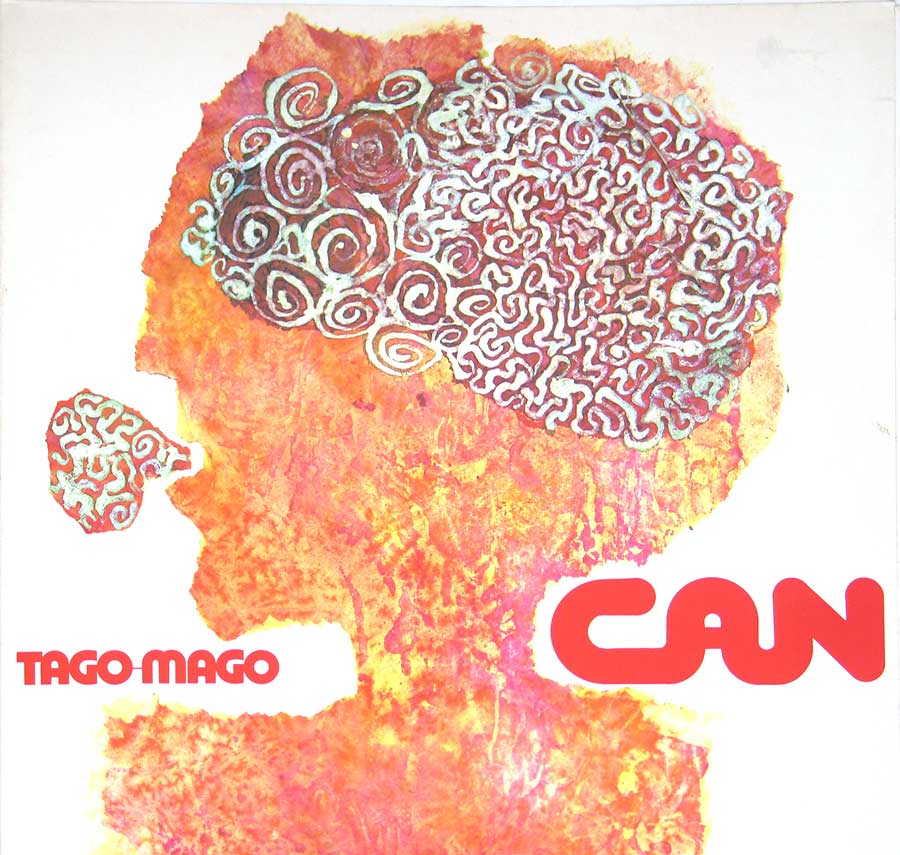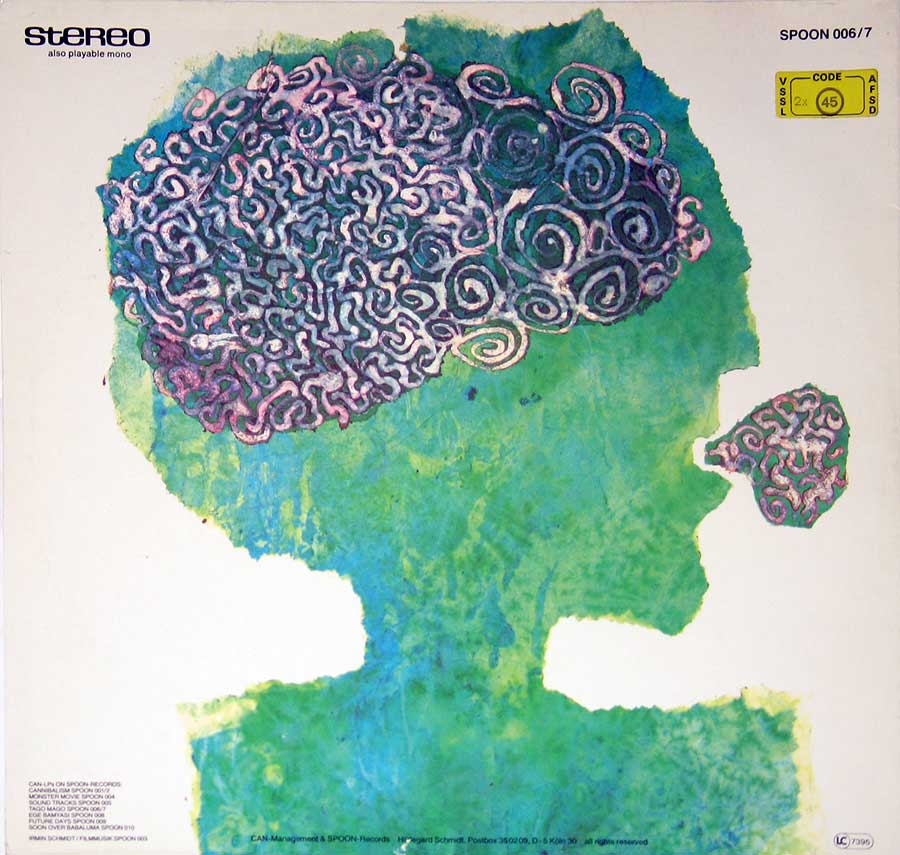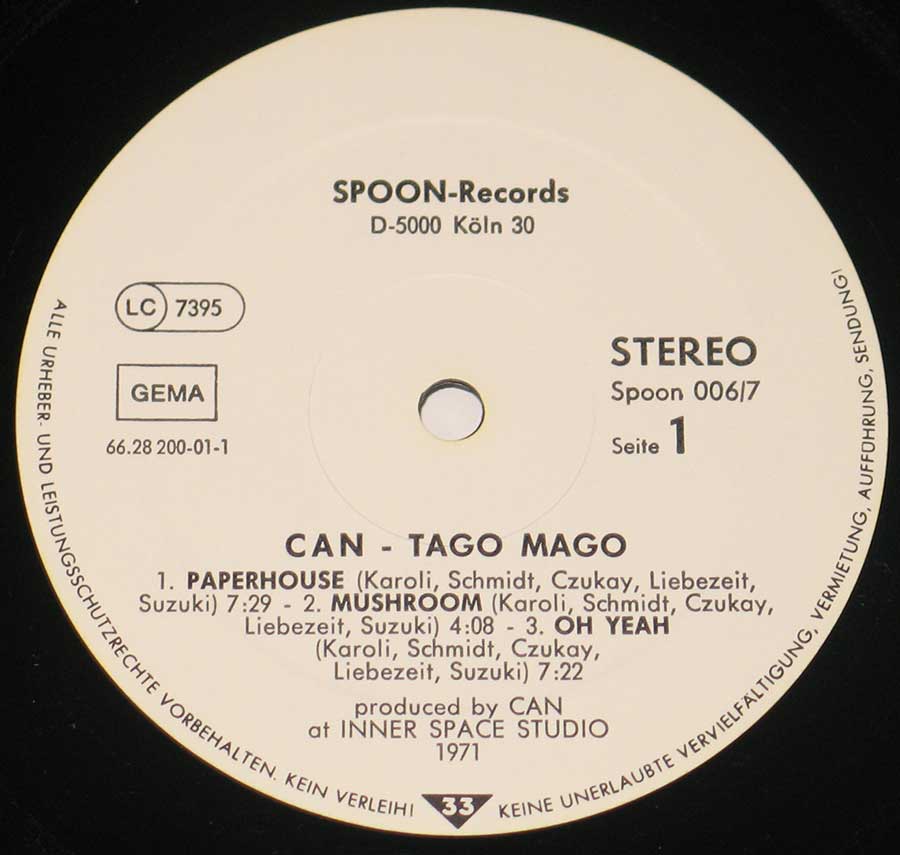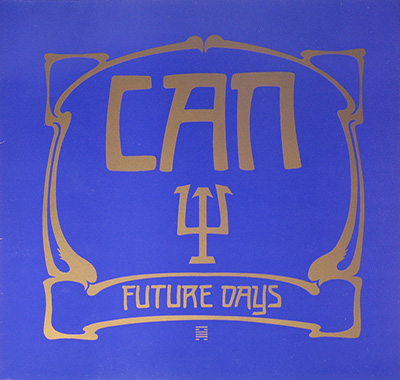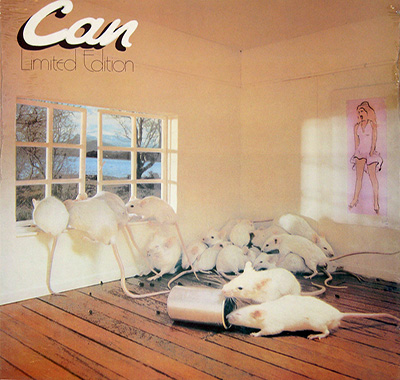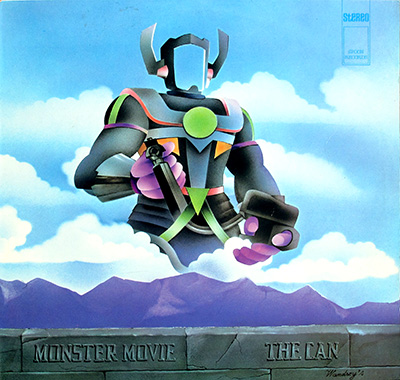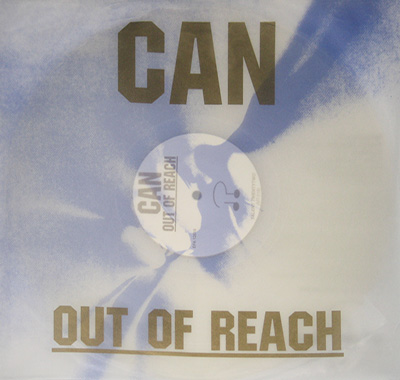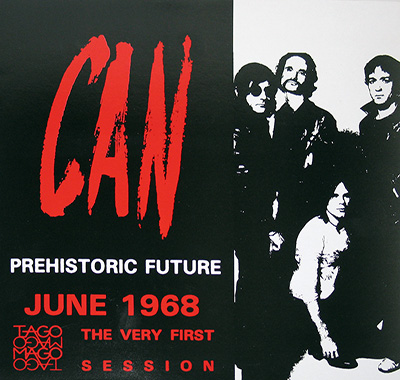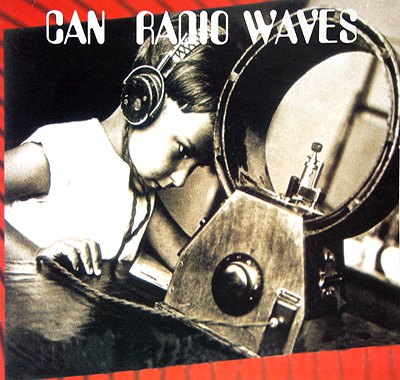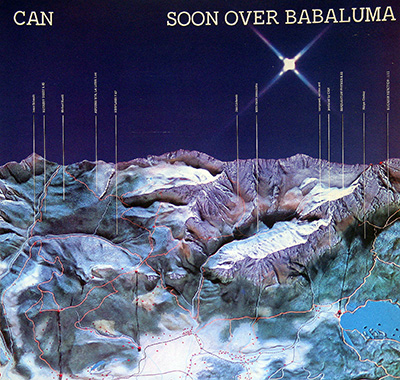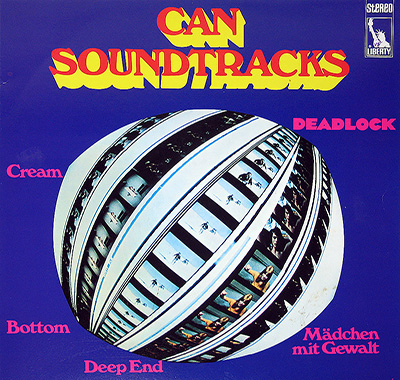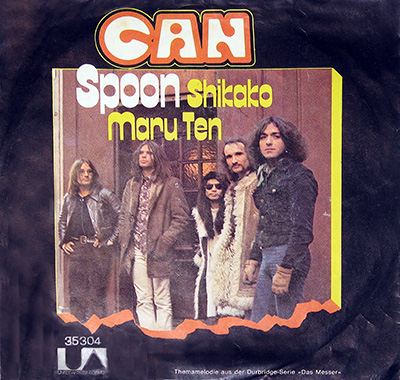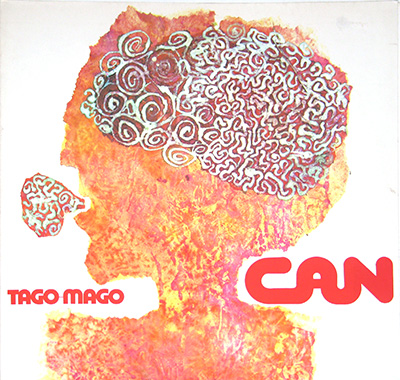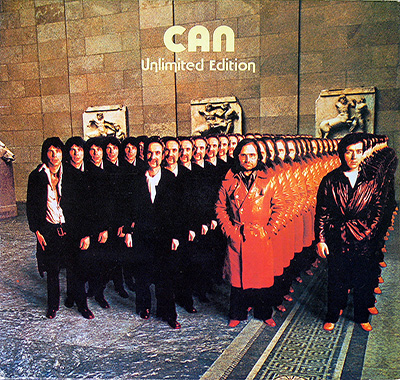CAN - Tago Mago 12" Vinyl 2LP Album
- SPOON Records
TAGO MAGO was CAN's official second album and was an attempt in achieving a mystery musical world from light to darkness and return. The album consisted not only out of regularly recorded music, but for the first time CAN combined 'in-between-recordings', that means the musicians were secretly recorded in the pauses when a new microphone and recording set up was being established. In that time the rest of the group just played in order to make the time pass by instead of waiting till the technical problems were solved. And there was always one microphone and one recorder on standby position for such cases. Altogether certainly a psychedelic experience, and the studio itself even turned into something new e.g. by changing dramatically the whole illumination.
